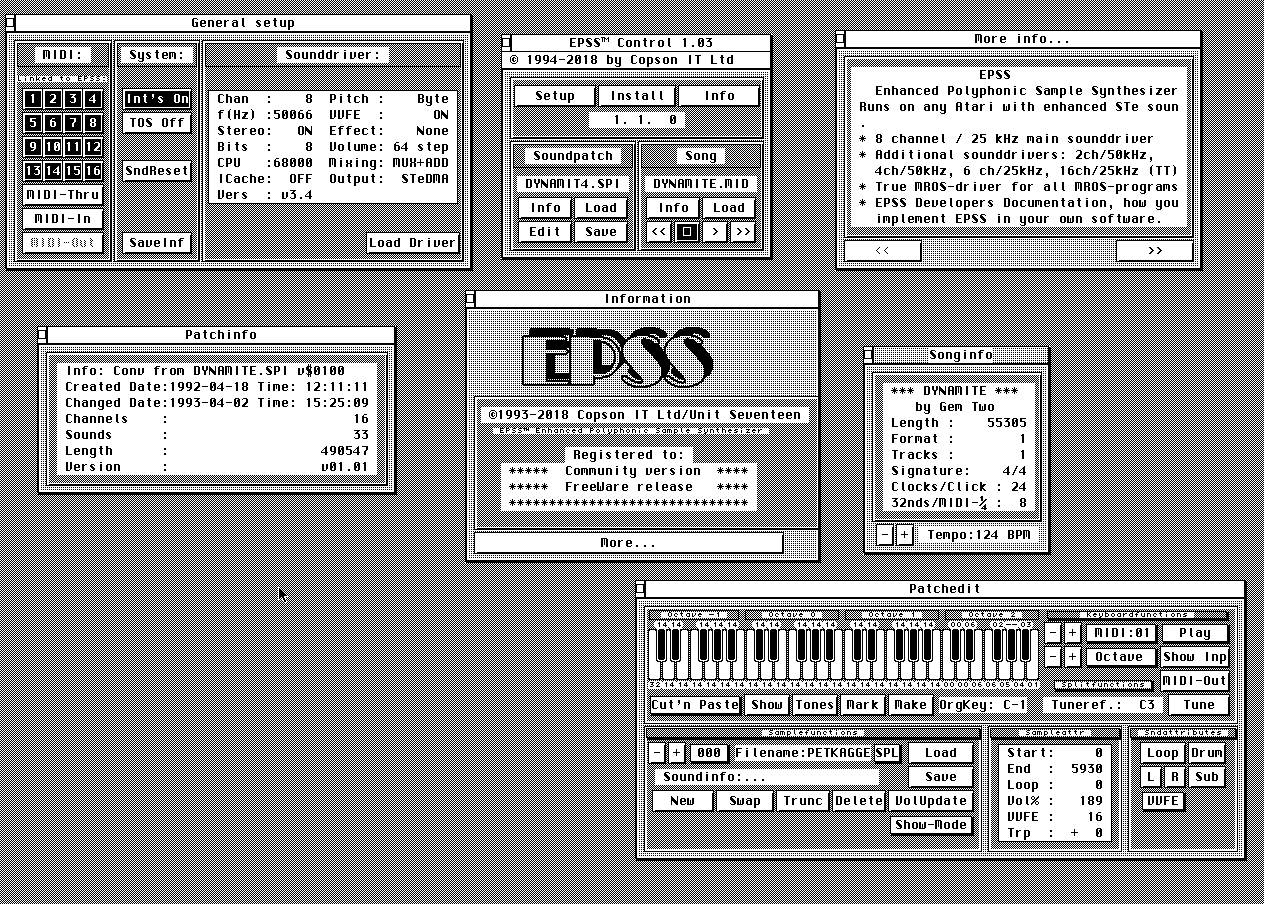Work is in progress for getting EPSS released to the Atari community!
Register here for latest news!
Come back here for the latest updates!

Home of Enhanced Polyphonic Sample Synthesizer
Work is in progress for getting EPSS released to the Atari community!
Register here for latest news!
Come back here for the latest updates!